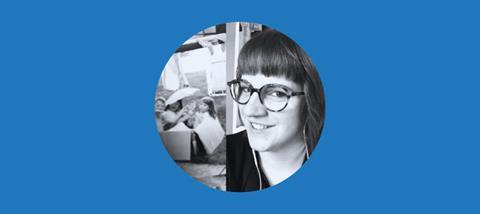
I struggled with my mental and emotional health throughout my teenage years. I ended up in hospital due to harming behaviour and a number of suicide attempts. When I was 15 Child and Adolescent Mental Health Services got involved. There was some counselling, and then talk of depression and teenage hormones.
For a number of years I struggled with my mental health, not really knowing why.
There were times when I would feel great and was loving life, but then suddenly the depression would hit. It would make everything feel dark. I was overwhelmed with a sense of emptiness and hopeless.

Fast-forward through 12 years of this continuing cycle and I finally received an answer. I ended up in hospital and was seen by a psychiatrist who asked me to fully explain my mental health journey. I explained my lows, and how I would suddenly feel great again, but when I felt great I made really stupid mistakes. It seems obvious now, but she told me the reason for my struggles and suddenly there was a light on. She said that I was, I have, bipolar (type 2) and that, with medication (for the rest of my life) and community support, I would be OK.
I finally understood that those moments of feeling great but out of control stemmed from the fact that I was hypomanic and not fully able to make healthy decisions. I understood that the depression wasn’t my fault, but my brain’s natural inclination. Knowledge is power, and now I am not just OK but healthy and happy and living a life to its fullest.
To keep doing what I love to do I knew that I had to take my mental health seriously
At 19 God called me into the wonderful world of youth work. I knew that I wanted to be the best youth worker I could be, so I did a degree and – despite the challenges of ill health and many other things – I made it through. I’ve worked for churches, councils and charities, in urban and rural areas, and with young people from all walks of life. With every new experience I love what I do more. I’ve also found God calling me and thus refining my skills to focus on emotional and mental wellbeing in young people.
But youth work is demanding and burnout rates are high. Imagine the burnout rate when your brain is wonky and depression is your baseline. To keep doing what I love to do I knew that I had to take my mental health seriously, to take responsibility, to learn to ask for help, to notice what was triggering and what was life-giving. I had to learn my legal rights, as I now qualify as a disabled person, and to take my relationship with God seriously, recognising that doctors and medication are a gift from him.
It hasn’t always been easy balancing these things. I’m the kind of person who goes above and beyond, and has a really hard time saying no or sticking to my hours (good supervision has helped with that). Pushing myself too hard is certainly not something that will keep me healthy. But I think I’ve found a good balance now. I learned some lessons the hard way, but thankfully I have learned them.
In April this year I became unwell again. My brain went up and then it came crashing down, because that’s what my brain does. There was no reason or trigger. I have an amazing life, a great husband, a great job, a great church, great friends and a great community around me, but my brain just decided to do what it sometimes does.
The moment I knew I was unwell I contacted my boss and a few other essential people at work to tell them what was going on. I updated them daily and made the choice to tell my whole team. I took time off from doing face-to-face work and focused on getting better. There were days when I was in the office and all I could manage was writing a to-do list, or a shopping list for Soul Survivor. I had to take more medication than normal, have regular meetings with the mental health team, and prioritise eating well and exercising.
It was tough making those decisions, but I knew if I wanted to be doing this I had to be realistic about what I could do. Thankfully, I had great support from my work, though this hasn’t always been the case. I have had employers ask me if I can do the job or whether they need to start thinking about alternatives. I’ve had people tell me I’m not emotionally strong enough and other unhelpful things.
Being bipolar is a medical condition, like asthma (which I also have). It gives me a unique view of the world, of God and faith and of how others struggle. Being bipolar also makes me a better person, Christian and youth worker.
Jesus came to give us life, and life in its fullness. Shame doesn’t play into that desire for our lives. It’s something I choose not to be ashamed of. I find God in the despair I experience and in the extreme joy, but most importantly I find God in the support and love of those people around me.
Medication and medical intervention, honesty and vulnerability, assurance in who I am and what I can do, having people around me who love me but aren’t afraid to ask questions about how I’m doing, knowing when to take some time off… all these things and more are how I function and flourish as a youth worker.
Click here to request a free copy of Premier Youth and Children’s work magazine


































